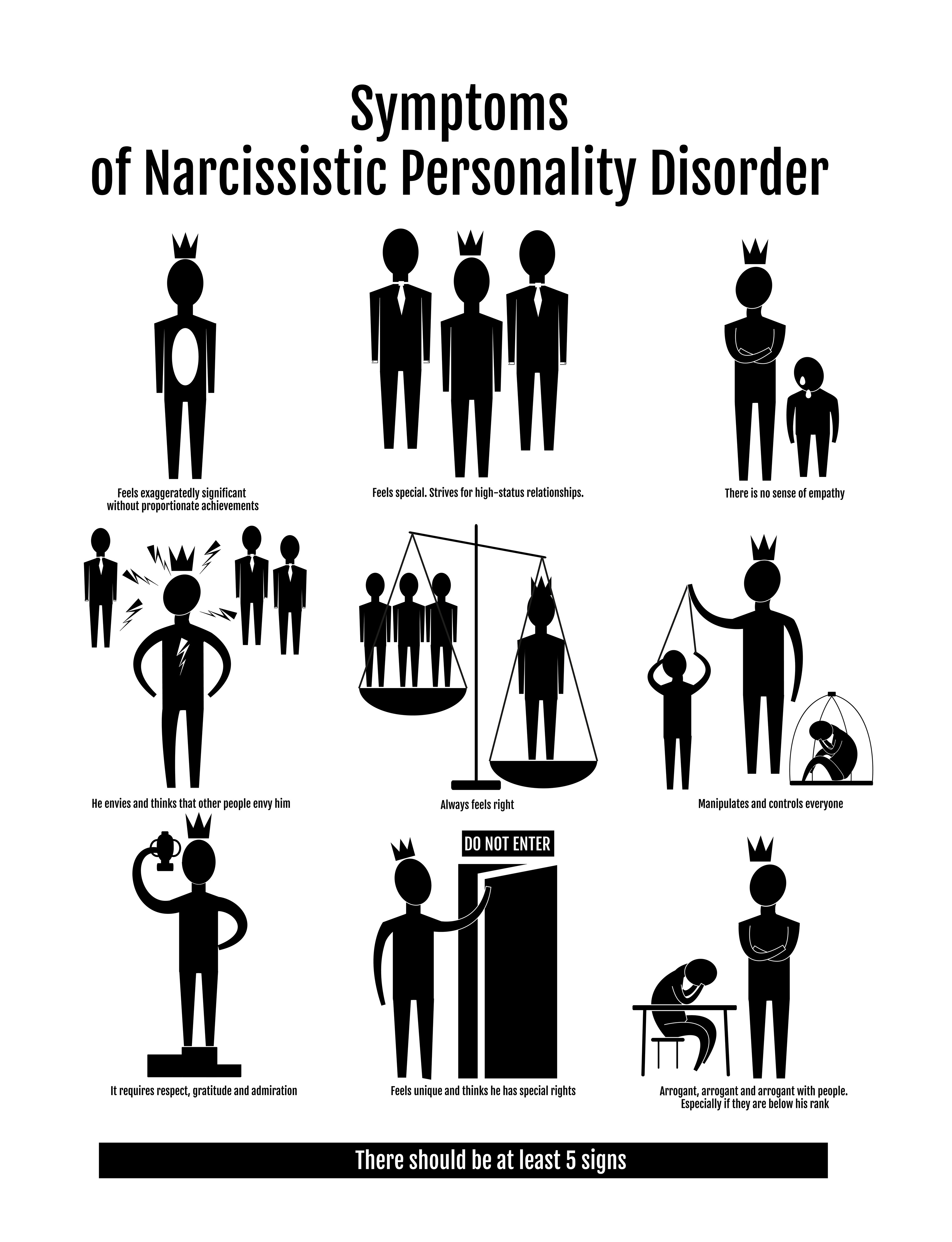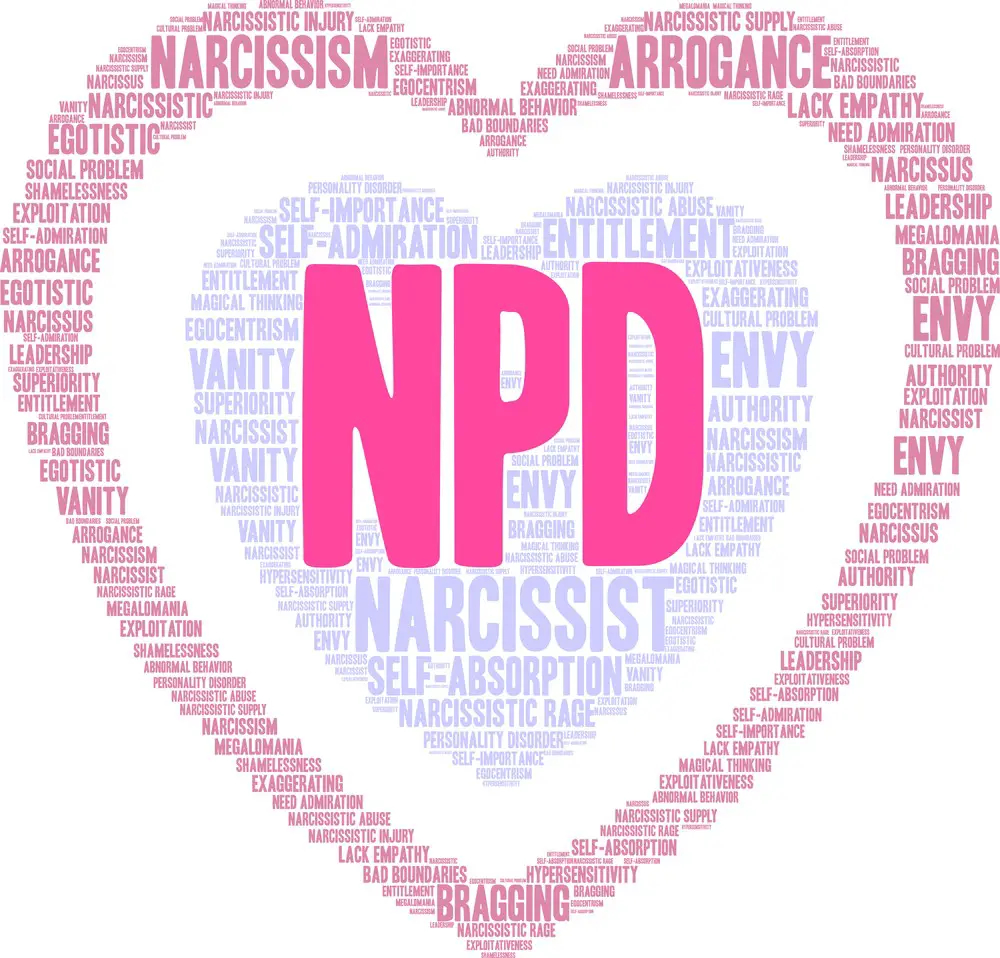As a BetterHelp affiliate, we receive compensation from BetterHelp if you purchase products or services through the links provided
Female narcissists, much like their male counterparts, possess an inflated sense of self-importance and a constant need for attention and admiration. Understanding what turns on a female narcissist can be instrumental in identifying problematic patterns in relationships and developing strategies to cope with their manipulative tendencies. It is important to remember that although most studies on narcissism have focused on men, women can also exhibit this personality trait, and recognizing it is essential for maintaining healthy and balanced relationships.
One of the defining characteristics of a female narcissist is their intense desire for admiration and validation from others. This stems from an underlying insecurity and a fragile self-esteem that requires constant external reinforcement. They are often drawn to situations and people that will provide them with the attention and adoration they seek, regardless of the negative impact it may have on those around them. This can include engaging in provocative behavior, surrounding themselves with enablers, or becoming involved in relationships that serve as a source of constant validation.
Key Takeaways
- Female narcissists crave admiration and validation from others due to their fragile self-esteem.
- They often engage in behaviors that provide attention, even at the expense of others’ well-being.
- Recognizing manipulative patterns in relationships with female narcissists is important for maintaining healthy, balanced connections.
 Understanding Female Narcissism
Understanding Female Narcissism
Female narcissism is a manifestation of Narcissistic Personality Disorder (NPD), a personality disorder characterized by an inflated sense of self-importance and a lack of empathy. Like their male counterparts, female narcissists often need admiration and may use manipulative behaviors to maintain their superiority.
Narcissistic women may present themselves as confident, independent, and powerful. However, they might also be easily threatened, hypersensitive to criticism, and have difficulty forming and maintaining healthy relationships. Their fragile self-esteem sometimes makes them perceive others’ actions as malicious, even when they are not.
In romantic relationships, female narcissists may seek partners who can give them attention, validation, and admiration. This might attract them to individuals who are self-centered or have a high social status, affirming their inflated self-image.
Recognizing the signs of female narcissism is essential, as it can harm the people they interact with. The traits associated with narcissism, including grandiosity, entitlement, and a lack of empathy, often result in harmful relational dynamics, emotional manipulation, and abuse.
Addressing and treating female narcissism requires a multifaceted approach. Psychotherapy, specifically cognitive-behavioral therapy (CBT), effectively treats individuals with NPD. Group therapy and self-help support groups can also be useful resources for those impacted by a narcissistic partner or family member. Understanding the nuances of female narcissism can help foster healthier relationships and promote emotional well-being for the narcissist and those around them.
 Characteristics of a Female Narcissist
Characteristics of a Female Narcissist
A female narcissist is characterized by an exaggerated sense of self-importance, often portraying herself as superior to others. She tends to be charming, manipulating others to serve her needs and crossing boundaries to meet her desires. Her appearance plays a significant role in her self-image, and she invests considerable time and effort to maintain her looks. Despite her confident demeanor, female narcissists are often driven by deep-rooted insecurities.
Self-importance is a defining trait of a female narcissist. She believes she is special and deserves admiration from others, often belittling or dismissing the feelings and needs of those around her. This behavior reveals her sense of superiority, as she considers herself unique and above others.
Charm is a powerful weapon for the female narcissist. She might come across initially as charismatic and likable, winning the trust and admiration of others. However, her charm can quickly shift to manipulation when persuading people to do her bidding.
Rage is another trait in female narcissists when they encounter criticism or disappointment. Unable to handle confronting situations, they often respond with disproportionate anger, blame, and vindictiveness towards the perceived source of their pain.
The needs of a female narcissist revolve around her desire for praise, admiration, and control. She constantly seeks validation and attention to reaffirm her self-worth and often turns to manipulation or emotional blackmail to get what she wants.
In maintaining their appearance, female narcissists pay close attention to their looks and the image they present to others. Physical attractiveness is used as a tool to garner attraction and assert dominance, which can, in turn, fulfill their desire for control and admiration.
Beneath the facade of confidence and superiority lies a deeply rooted insecurity for many female narcissists. They may be obsessed with their achievements and success, constantly needing reassurance and admiration to ease their fear of being unremarkable or unworthy.
Understanding a female narcissist’s various traits and behaviors helps identify and address the potential challenges one might face while interacting with them.
 How a Female Narcissist Operates
How a Female Narcissist Operates
A female narcissist thrives on attention and admiration. She often seeks to establish control over her surroundings and the people in her life. To maintain her image as confident and powerful, she frequently uses a variety of tactics, such as lies, manipulation, and gaslighting.
A female narcissist establishes control by abusing her partner or loved ones. She may use emotional manipulation, stonewalling, or even physical aggression to assert dominance. This type of abuse often leaves her victims feeling disoriented and vulnerable, allowing her to maintain her grip on them easily.
Status and wealth are also important to a female narcissist. She may associate her self-worth with material possessions and social standing and constantly seeks to climb the ladder of success. This pursuit often involves exaggerating her achievements, lying about her background, or belittling others to make herself appear superior.
Gaslighting is a common technique used by female narcissists to maintain control. This involves consistently denying or distorting reality, leading the victim to question their thoughts and memories. This manipulative tactic can create a sense of dependency and confusion, ensuring that the narcissist remains the center of attention and in control.
Another way a female narcissist operates is by utilizing her image to garner compliments and admiration. She often spends significant energy maintaining a certain appearance and presenting a seemingly perfect life, which often serves as a tool to attract praise from others. This external validation reinforces her belief in her superiority and fuels her need for control.
In summary, a female narcissist uses control, attention-seeking, manipulation, and lying tactics to influence others. Understanding how a female narcissist operates can help one recognize the signs and protect oneself from falling victim to her damaging behavior.
The Trigger Factors
The trigger factors for a female narcissist are often related to the perception of success and admiration from others. They tend to thrive on accomplishments that reflect their sense of self-importance. Achievements play a crucial role in their lives, as they are driven to exceed expectations and be recognized by others.
A key driving force for female narcissists is the respect and praise they receive from their peers and loved ones. Regardless of whether the admiration is genuine, it boosts their ego and reinforces their perception of superiority. They are easily drawn to situations where they can soak up attention and validation.
Social status is another significant factor for female narcissists. The desire to outshine others and be seen as the “winner” often compels them to pursue material possessions, high-profile careers, or relationships with influential individuals. Winning becomes an obsession; they may resort to any means necessary to attain and maintain their desired societal position.
In conclusion, the trigger factors for female narcissists revolve around validation, achievements, social status, and winning. These individuals are driven by an insatiable desire for admiration and the need to establish themselves as superior beings. Understanding these factors can help one better navigate relationships with narcissistic personalities.
Female Narcissist in Relationships
Like any narcissist, a female narcissist craves admiration and validation in relationships. In pursuing these goals, they often manipulate and exploit their partners. This behavior can manifest differently in various aspects of life, including work and personal connections.
In a romantic relationship, a female narcissist seeks to establish dominance, controlling her partner through various tactics. She often appears charming and affectionate at the beginning of the relationship, but her true colors emerge as time passes. Her need for validation and admiration may make it difficult for her to engage in a healthy relationship with mutual love and respect.
A female narcissist may use her charm and influence to advance her career at work. She may manipulate colleagues and supervisors, often fostering a competitive environment to showcase her abilities. Her focus on her success often overshadows the importance of collaboration and teamwork.
While connecting with others, a female narcissist tends to devalue those around her by belittling their accomplishments or opinions. This approach allows her to maintain a sense of superiority and feeds her ego. However, this behavior can hinder the development of meaningful connections and may foster isolation.
To maintain her power and importance, a female narcissist may engage in a constant cycle of idealizing and devaluing her relationships. She might initially charm her way into a person’s life, only to dismiss them once they no longer serve her purpose. The constant need to establish superiority can make it difficult for her to sustain long-term, healthy relationships.

Narcissism and Mental Health
Narcissism is linked to various mental health conditions, making it essential to consider this connection when discussing a female narcissist’s triggers. Narcissistic Personality Disorder (NPD) is characterized by an inflated sense of self-importance, a grandiose view of one’s abilities, and a deep need for admiration. In some cases, individuals with NPD may experience additional mental health issues.
Depression and anxiety often accompany narcissism. These conditions can stem from the constant need to maintain an idealized self-image. The inability to meet these high standards may lead to feelings of inadequacy and increased stress, contributing to depression and anxiety.
Trauma can also play a substantial role in the development of narcissism. Specific events or prolonged exposure to adverse situations may lead an individual to create a protective, grandiose exterior. Such shielding may be an adaptive response, with narcissistic traits emerging as a coping mechanism.
Mayo Clinic emphasizes that therapy is essential for treating and managing NPD and related mental health conditions. Mental health professionals recommend seeking help from a knowledgeable and experienced therapist who understands the complexities of these issues.
Stress and shame are important elements in the life of a female narcissist. External stressors can exacerbate underlying mental health conditions and provoke narcissistic behaviors as a compensatory response. Additionally, shame may manifest when a narcissist faces criticism or perceives a loss of control. This emotional reaction can propel the individual into defensive and manipulative actions to regain a sense of superiority.
Addressing the interplay between narcissism and mental health requires a comprehensive approach. Recognizing how factors such as depression, trauma, anxiety, and shame contribute to narcissistic tendencies can provide valuable insight into the female narcissist’s motivations and strategies for treatment. By seeking appropriate care and support, individuals with NPD and related mental health issues can work towards a healthier and more balanced sense of self.
Influence on Younger Generation
The impact of a female narcissist on the younger generation is considerable. Narcissistic personality disorder affects an individual and those around them, including males, females, teens, and children. As a personality disorder, narcissism is part of a spectrum with other complex and often co-morbid personality disorders.
Males and Females: The behaviors of female narcissists may affect male and female peers differently. Male companions might experience manipulation and unrealistic expectations within their relationships. In contrast, female friends may encounter jealousy, competitiveness, and emotional abuse due to the female narcissist’s need for control and admiration.
Teenagers and Children: Younger individuals, such as those exposed to a female narcissist, might imitate or even endorse narcissistic behaviors. A narcissistic role model’s influence can lead to unhealthy relationship dynamics, lack of empathy, and excessive self-focus.
- Personality Disorders: It is critical to understand that narcissistic personality disorder can co-exist with other personality disorders. When these disorders blend, the impact on younger generations can become even more profound, leading to complex psychological challenges and negative influences.
In a nutshell, the presence of a female narcissist in the younger generation’s lives can bring about significant challenges for males, females, teens, and children. The complexity of the presence is deepened when influenced by additional personality disorders, potentially creating an unhealthy environment for growth and development.
Dealing with Female Narcissists
Dealing with a female narcissist can be challenging as she may not always consider the feelings of others. In many cases, female narcissists may become envious, angry, or even withdraw from certain interactions. It’s imperative to approach such a person with a clear understanding and a neutral tone.
One of the most crucial aspects to remember when dealing with female narcissists is that they often have distorted views of themselves and others. They may try to manipulate individuals into becoming their puppets, using them to satisfy their own needs. To avoid succumbing to these manipulations, it’s essential to establish and maintain personal boundaries.
Setting firm boundaries will help prevent you from getting involved in emotionally damaging situations or becoming too obedient to the female narcissist’s wishes. When confronted with such a person, remain confident, knowledgeable, and clear in communication. This can keep the focus on the issue at hand rather than getting drawn into their manipulative tactics.
It’s also essential to recognize that when dealing with a female narcissist, she may not take responsibility for her actions. Instead, they may blame others or make excuses for their behavior. Staying firm and resisting the urge to take on this blame is important. Understanding that their distorted view of reality drives their actions can help you respond appropriately without getting emotionally invested.
In conclusion, when dealing with a female narcissist, maintaining personal boundaries and communicating clearly and confidently is the key to navigating interactions without being negatively impacted. By understanding their distorted views and manipulative tendencies, you’ll be better equipped to handle their behavior while protecting your emotional well-being.
Final Thoughts
A female narcissist’s self-worth is often bolstered by the attention and admiration they receive from others. This is reflected in their sexuality and relationships. The psychological aspect of their behavior can be attributed to an overwhelming desire for validation and a fear of abandonment.
Female narcissists are drawn to having followers, whether as romantic partners or simply as admirers. This provides them with a constant source of ego-boosting attention. However, this craving for validation can lead them to cheat, as they may seek to satisfy their emotional needs through multiple sources.
It is important to acknowledge that the behavior of a female narcissist is not solely driven by malicious intent or a willful desire to manipulate others. Rather, it is rooted in a complex interplay between the individual’s self-esteem, emotional coping mechanisms, and social dynamics.
A deeper understanding of the psychology and motivations behind female narcissists’ actions is essential to navigating relationships with them. One can better approach and manage interactions with a female narcissist by recognizing the behavior patterns and underlying emotional needs.
Frequently Asked Questions
 How do female narcissists behave?
How do female narcissists behave?
Female narcissists often display a strong sense of entitlement and a constant need for admiration. They may engage in manipulative behaviors to maintain power in relationships and can be overly concerned with their appearance. Additionally, they may struggle with empathy and often put their needs ahead of others.
What attracts a female narcissist?
Female narcissists are typically attracted to individuals who can provide them with validation, admiration, and attention. They may also be drawn to people with high social status or resources that can contribute to their self-worth or image.
What are common manipulation tactics used by female narcissists?
Female narcissists often use various manipulation tactics to maintain control of relationships. These may include gaslighting, love-bombing, triangulation, and playing the victim. Additionally, they may employ guilt and shame to coerce others into meeting their needs and desires.
How do female narcissists handle jealousy?
Female narcissists may experience intense jealousy due to their fragile sense of self and need for admiration. They may react with anger, passive-aggressive behavior, or attempt to undermine the person they perceive as threatening their sense of superiority.
What can potentially turn off a female narcissist?
A female narcissist may lose interest in individuals who don’t provide them with the validation or attention they crave or those who challenge their sense of self-worth. They may also be turned off by people who refuse to be controlled or manipulated by their tactics.
How do female narcissists act in intimate situations?
In intimate situations, female narcissists may focus on their own needs and desires, often at the expense of their partner’s emotional well-being. They may also use intimacy to control or manipulate their partner and may have difficulty forming deep emotional connections due to their lack of empathy and emotional vulnerability.
As someone who has dealt with a female narcissist in a difficult custody battle, I understand the unique challenges of navigating a relationship with a narcissistic woman. While I take Lexapro to manage my mental health, I’ve also learned strategies for dealing with narcissistic behavior and protecting myself and my children from its harmful effects.
Despite the ongoing court battle with my ex-partner’s severe case of narcissism and her complete alienation from our children, I remain committed to fighting for their well-being and doing what I can to manage my mental health. I take long walks daily to clear my head and focus on what’s important.
To provide support and guidance to others who may be facing similar challenges, I write articles about mental health and narcissism. I also have a legal site where I help others dealing with a spouse who refuses to comply with court orders and weaponizes their children rather than co-parenting. I hope to provide resources and strategies for dealing with female narcissists and navigating difficult relationships, whether it be through legal action or personal growth and healing. With the right support and resources, anyone can overcome their mental health challenges and find a path toward healing and recovery.
- 5 Helpful Ideas for Managing Stress During a Plumbing Emergency - April 24, 2025
- Buying a Franchise Without Losing Your Mind - April 24, 2025
- 3 Ways Wearing a Hat Can Help Lower Your Stress Levels - April 19, 2025
This site contains affiliate links to products. We will receive a commission for purchases made through these links.


 Understanding Female Narcissism
Understanding Female Narcissism Characteristics of a Female Narcissist
Characteristics of a Female Narcissist How a Female Narcissist Operates
How a Female Narcissist Operates

 How do female narcissists behave?
How do female narcissists behave?
